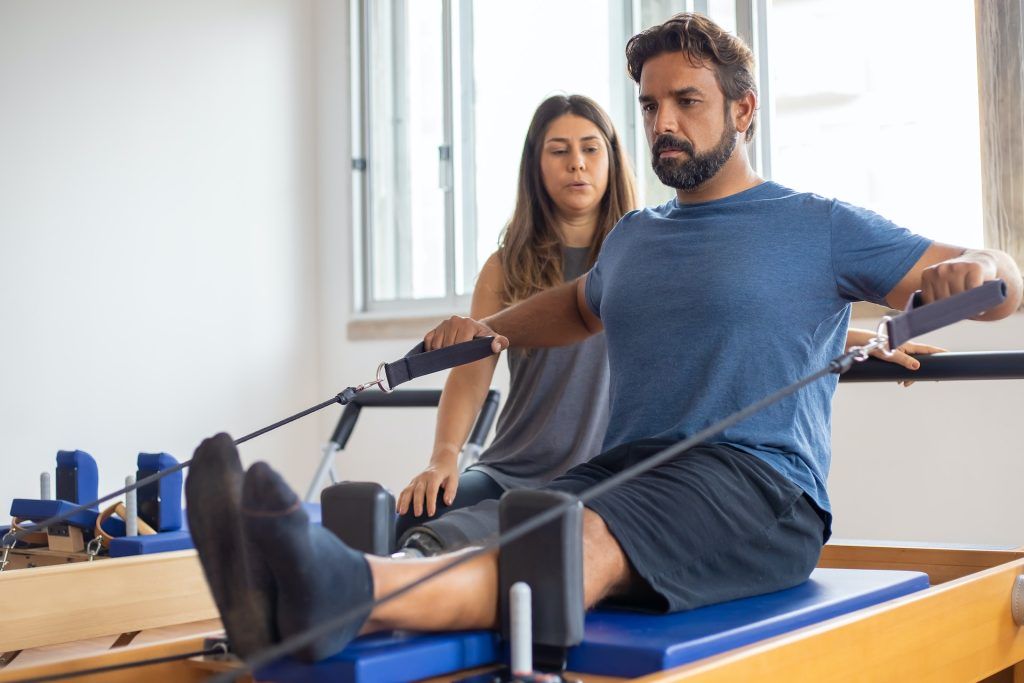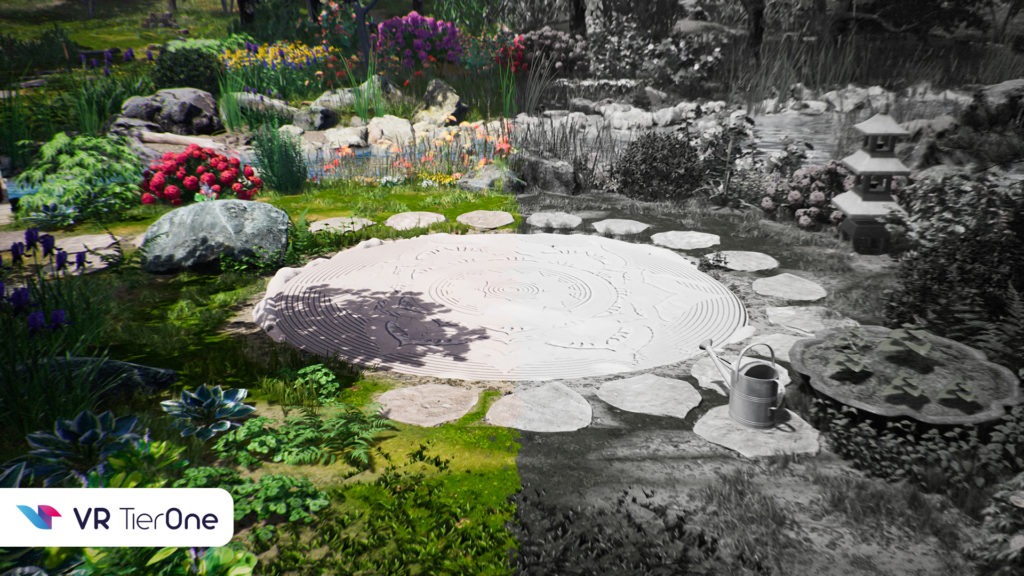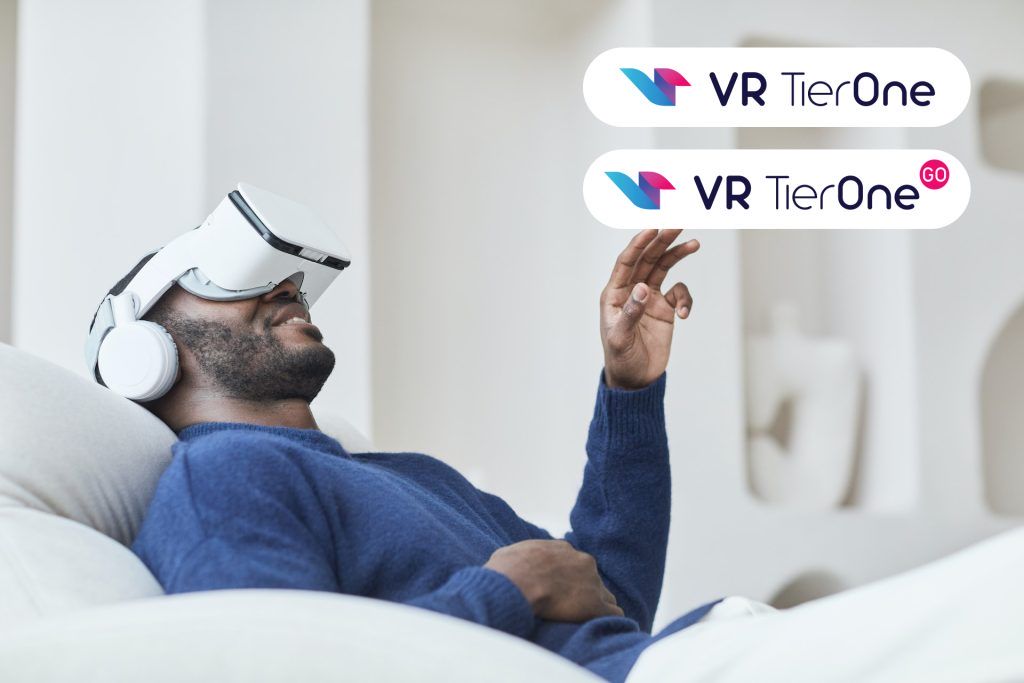Serious and chronic diseases are mentally burdensome for the patient. Loss of health requires a new look at reality. Adapting to a changed health situation can be effected by adopting more or less favourable attitudes. Patients coping with the disease in a constructive way increase their chances of better treatment results and improved quality of life. VR TierOne therapy helps to initiate constructive strategies of coping with the disease and its consequences.
Constructive and destructive strategies in the face of the disease
In the stressful confrontation concerning the state of their health, patients present different approaches that condition the therapeutic and rehabilitative effects. Two extreme strategies for coping with the disease are identified – constructive and destructive. Constructive strategies, i.e. those that give positive results, are characterized by activity and the search for solutions, include the following attitudes:
- Fighting spirit attitude – the disease is treated as a personal challenge, prompting to take action.
- Positive re-evaluation attitude – the disease is a serious situation, but it does not take away gratitude for the years lived in health and feeling hope.
Destructive attitudes, i.e. those of a non-adaptive nature, are manifested by a passive attitude and giving in to the illness. These include:
- Attitude of preoccupation with anxiety – the disease is perceived as an uncontrolled threat causing anxiety.
- An attitude of helplessness – the disease appears as a hopeless situation, in the face of which we experience helplessness.
Strategies for managing the disease may change, depending on the circumstances. Constructive coping with a problem may require space and time to experience emotions, especially in a particularly difficult situation. The style of coping with stress developed by the patient has a significant impact on the way the patient handles the disease. This style can be:
- focused on the task,
- focused on emotions,
- focused on avoidance.
Constructive strategy as a determinant of better healing effects
The resources available influence how the new health situation is perceived. There is a positive correlation between constructive strategies and a sense of self-efficacy. This means that the attitudes of fighting spirit and positive redefinition is presented by people with a high sense of self-efficacy. On the other hand, patients with an attitude of anxiety and helplessness demonstrate a low level of sense of agency. Help is needed to get these patients involved.

Fatigue, pain, anxiety, depressive symptoms accompanying somatically ill patients promote destructive attitudes, which can lead to resignation and discontinuation of treatment. With the help of psychological interventions, the emotional state of the patient can be improved so that the disease does not appear as an injury and threat, and the situation becomes less stressful and catastrophic in the patient’s perception. Reducing anxiety, stress and depressive symptoms is conducive to acceptance of the disease. This is an important issue for dealing with the disease. Acceptance of the disease means acknowledging the fact of being sick and the need to make changes in connection therewith Acceptance is not associated with an attitude of resignation, but with an attitude of action and focus on treatment.
VR TierOne for constructive management of the disease
Patients who have experienced a serious condition or illness usually need to undergo treatment and rehabilitation. This process is both lengthy and demanding. Improving the mental state of patients at this time is of great importance for obtaining beneficial mechanisms of coping with the disease and the successful course of improvement activities. To cope well with the disease, it is necessary to strengthen internal resources, improve well-being, reduce stress and adverse psychological symptoms. A constructive attitude translates into better cooperation with the doctor/rehabilitator and compliance with the orders. This is important because convalescents usually require lifestyle modifications to prevent complications or recurring health incidents. Patients who experience difficulty with emotions and effectively coping with the disease can benefit from psychotherapy. However, access to psychotherapists is limited, so alternative therapies are being sought. VR TierOne is an innovative psychological intervention that has been scientifically tested for the reduction of stress, anxiety and depression in people with somatic diseases such as: stroke, heart attack, COVID-19, COPD and breast cancer. Virtual Reality therapy is empowering, it helps patients to cope better with an unexpected diagnosis, and limits their destructive style of coping. The therapy sessions conducted by the virtual therapist strengthen the patient’s internal resources, increase optimism and modify the attitude towards the disease.

The virtual therapeutic experience prepared by VR TierOne supports motivation, increases the sense of self-efficacy, becomes the motor of activity and recovery. VR therapy is pleasant, safe and non-stigmatizing, which is why it is readily used by patients in need of psychological support. VR TierOne gives medical facilities a tool to efficiently help patients with mental health issues that makes it difficult for them to achieve a constructive attitude to cope with their disease.






